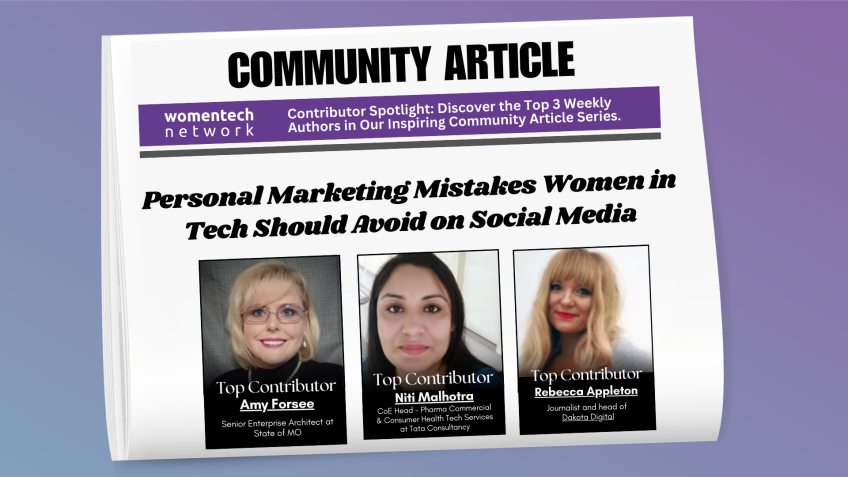Nadia Znachko - How to Succeed in Diverse Cultures, Geographies and Communities
Video Transcription
So I'm going to give everyone a bit of a break from the slides and uh let me start with an introduction. My name is Nada Mao. I work for Lux of DXC Technology Company.And today I'm honored to be here to talk about success in different geographies and cultures uh for us to get better acquainted. I would like to start with a brief introduction and outline of the past I have come so far. So over the course of the last 10 years, I have been working in four different countries. Ukraine, Poland, Singapore and UK, I have started my path as a quality assurance engineer in Ukraine. And after four a f few years, I have progressed my skills enough to move to Krakow and take a test manager position for a large of short delivery team. It was an extreme experience for me because before that I have been abroad only three times and I have never actually lived outside of my home city. But fortunately, uh Poland is very similar to Ukraine, the culture and attitude is similar. So it helped me to assimilate it uh to get assimilated very fast. And the work was very interesting and challenging.
The team was growing rapidly and I found myself taking more and more responsibilities each day until at some point, it reached a peak and started to be a bit boring. The days were similar to each other and even the deadlines and dealing with emergencies started feel a little bit like a routine. And as I always was focused on developing myself, I understood that uh if I would like to continue doing so, I needed a new challenge. So the opportunity presented itself. And within a few months, I have decided to make radical change and move to Singapore, taking also a new role in uh consulting and business development. It was one of those moments in life when everything seems to change all of a sudden environment, scope of work, climate people around me. Because back in Poland, I had um plenty of uh friends and my family was close and I had a lot of support and I had to leave it all behind when moving. And it was very tough, but it also turned out to be the most valuable experience I have ever had, which helped me to become a person. I am right now and reach the point in life where I am now.
So three years later, I find myself in London, happily holding a position of global head of quality assurance, something I have dreamt of since the very point that I have started. So uh being a woman in a man dominated industry is a challenge in itself, but it becomes twice as much when you have to deal uh with it and make progress in a completely new environment. Change is never easy. Uh Whether changing project continent coun uh country or city, there are some obvious challenges that everyone knows of, but there are also a lot of underwater currents and uh some things that you uh have not prepared for that could be impactful and unpleasant surprise. Today's time is limited.
So I have selected just a few subjects to cover. The first thing I would like to talk to is about the challenges that I have faced while working in moving countries, several tips on what exactly worked for me and helped me to accommodate uh and things that I wish I had known before I moved. All of this is based on my own perception and experience and I'm happy to share it with all of you in the humble hope that some of you will find it useful and maybe it will inspire someone to uh make a big change in their life as well. So the first thing that uh is in our focus when we move for work is the work itself. Uh we want to start being productive as soon as possible and uh get along with the teams where we start in as soon as possible. And here is when, where we start with building our own brand. Well, it's actually something all of us do uh from the very beginning of our life and something that we were doing, even before there started to be a clever name for this concept. Whenever you move to another project or country or company, it feels like you need to build your image from scratch, which is not exactly true because you need to remember the years of experience behind your shoulders And um because you know who you are already and how to present yourself.
Building a very good first impression in front of your new colleagues, first impressions are truly important. But as I got to know over the years, consistent impression is much more important than the first impression. What helps building both is language. It goes without saying that for those of us, for whom English is not a native language, improving the skill is essential as it is the main language of business uh communication and business conduct. But it is also uh equally important to start learning the language of a country you're moving into. Of course, it's not. If uh uh it's the case, then you're moving to a country where English is the one and only spoken language. Um But if if it is not the case, uh you can find it that it tastes bitter when your colleagues chat around you in the language that you don't understand for me at this time. Uh I like I felt excluded most of the time and they did do not do it on purpose because I was lucky enough that my colleagues were always switching to English when we had a group discussion or where when we were just talking or chatting. Uh But it will happen, there would be some phrases that they say to each other, some jokes. And this is the point when you feel like you're all alone and completely left out.
So since, since then, not to feel like that, uh my approach is to start language of a destination place. And it doesn't matter if I move there permanently or if it's a place I'm just going to or go for business trips. Often it is a major commitment of time. Yes. And it takes a few months to build at least a basic knowledge of a completely new language. Uh But through this time, you also start to understand tones, cadences and the way people build sentences and think in the language. So when you come to a country, you do not feel as foreign. Because when you hear people talk around you, it feels like uh you know what, what they're saying. And as non verbal communication is also very important, you might start to understand all of, of the things that are being sent around you. It is an investment of time, but it does bring an amazing return, returning to building a consistent impression. Uh Another big thing here is earning authority. It's one and only true way to success. No matter if you are moving or changing countries or changing companies or if you're staying at the same place, it's the hard work that you put in. You need to show what you can do. Uh It's the foundation of the course of success anywhere, especially when you are moving to a highly competitive place.
Since you moved there, your colleagues will have a certain expectations like the bars that you need to live up to show you that you're capable and talented experts. I'm sure all of us are in our fields. You bring value to the project to people around. You need to believe in that and you need to show them that. One of the keys here is industry awareness because uh trends and youth are global and it's crucial to know them. It helps to uh bring your top game to the table. And uh also proves that you're an expert in your field. The thing that helped me a lot was learning about uh large and small industry events in the geography. I was moving to and trying to hit as much of them as possible. Not only it helps to help to stay sharp on the professional knowledge, but also it helps to learn some small details and nuances of how the business in the industry is conducted in a certain region because it might surprise you that it would be a bit different uh from the country you come from.
And the last thing about those events is that they help you to build a social network and useful connection in the field you work in, in the new place you have moved to, which is very important uh to uh for you and for your development because you might have lost your existing network when you move to a far away country.
The thing that I did not do and I wish I did uh was to find out the main local influencers and uh read their blogs tweets or articles uh to adjust faster by knowing the references and being able to maintain some of the conversations with my colleagues. So since the, since that experience, I am trying to do that every time that I'm going somewhere else while we focus on working hard and maybe losing ourselves a bit in the work. Uh There would be times when people around you will often indirectly remind you that you are an outsider and there are pros and cons of being an outsider. Uh It's always great to fit in into the community when you just move. Uh Unfortunately, for me, it has not happened any time I moved. Uh So uh it's a bit of a struggle then yet people around you are very happy to explain the differences that you have. There are a lot of landmines during interaction with other people. You may unknowingly offend someone or act inappropriately. But here is where a misfit is a big plus because people will forgive you a lot of things just because you're foreign, they will happily explain what you did wrong. Why was it inappropriate inappropriate in do certain thing in their culture and uh how you should proceed acting going forward, you will be expected to make those mistakes. It's dealing with your mistakes that you would be judged upon.
So you need to work out a graceful way to do so. And also we need to remember that people would be thrilled to tell you more about positive things such as holiday celebrations in inside, in their cultures, which is one of the most interesting things to get when you move to the other country. And in return, you would be expected to share some of the things from your homeland, like talking about your culture, uh getting um uh getting them out to try your traditional meals if they are available, explaining some of the specifics of uh the homeland, your home country, where you come from, talking to people about, that also helps with possible stereotypes.
They may uh have in their minds about your ethnicity, especially if they haven't had much interactions with people from your homeland before it will help them to build a correct image in their heads and maybe uh to treat some of those stereotypes. Uh And to finish about the building, the impression there were two magical approaches for me to blend in faster, no matter which country I was moving into. The first one, which is the main thing. And it's always important to remember about it is the authenticity. It helps more than ever to follow the rule. You do you because no matter how hard you try and how good you act, people will see and feel insincerity, especially in the long run. And the second thing was eagerness to help. In addition to putting in hard work for the project I was involved in, I was also looking to uh possibilities to use my skills, talents and knowledge to help people around me. It would not be connected with work and could be something unrelated to the subject of work at all, but it does help to build bridges faster. Uh When speaking about the ways how we approach our work, we, we, we talked about approaching the work, a approaching simulation and building relationship with your colleagues.
But the one thing that we need always to remember and keep a track of is our inner feelings and emotions because when we change geographies drastically, it is very important to be accepted and not just as a professional, not at working space. Yes. Uh First and most important task at the beginning is for us to show the professional skills we get lost in work for some time doing uh something that is familiar, but over the course of time, uh if you do not find social circle, it will become harder and harder to maintain psychological balance and comfort growth is outside of your comfort zone.
Uh It is a very popular phrase, but if you're already so far out of your comfort zone, which will happen if you're moving far away from your homeland, you need to find a corner you're comfortable in because otherwise your mental health may be severely impacted. You may lose motivation, confidence, you will feel homesick. You will question your every step. You will start doubting every single small thing and start developing a strong case of imposter syndrome. And it will all accumulate, impact your mental health and make you feel generally unhappy and it is going to be tough when you move. Uh You're not the part of the group you're ethnically different. You grew up on different movies, music, pop culture, role models. The history you studied is different. You will feel like an outsider. So find a safe space, a hobby group of like minded people or other experts who have just moved for me. It was gyms that helped me to keep my sanity. I was running away to hide and work out. Uh For countless times when I felt down last but not least component of striving to succeed in global environment is dealing with time, time zone differences. And it is not only applicable to you moving to a remote location, but also when you work for a global uh corporation by staying at home. I'd like to resort to one of my favorite quotes from my consulting days. You cannot manage time, you can only manage yourself.
I cannot agree more though sometimes it's very frustrating, especially being in a remote geography to briefly describe habits of my colleagues in A P A who mostly need to deal with Europe and us. Uh hence the huge time gap between work hours and meeting times. Often people in Singapore and Australia follow different work hours approach. Start at 9 a.m. with a focus on local meeting and tasks at lunchtime, head home, take care of day to day, household activities or hobbies and then in the evening get back online, finish meetings with Europe us uh work up till the really late time. Frequently it's um gives more benefits as certain chores require you to be present at the working hours such as handing me on coming over doctor appointments, certain gym classes, picking up your kids from school. But it also means that you cannot be fully relaxed because you know that come evening, you would need to put on your working hat. Again, some of those approaches I actually picked up and used them till today because it works best for me. Although it was established through a dreadful phase of borderline burnout. I started to blend my personal calendar into work calendar and making sure that life outside of office is not constantly getting sacrificed for the greater good of the business duties.
I think nowadays we should all just accept the fact that 9 to 5 workday isn't the best flexibility, accommodation and agility are the skills of new enterprise. Culture. Work is something to be incorporated and becomes part of everyday life, blurring the boundaries more and more each day.
And in this reality, it is exceptionally important to do what you enjoy. Because work life balance is no longer achieved through a simple act of leaving your office on time and just to summarize through the course of my journey, the thing that I have learned is that there is no silver bullet to help you with the challenges. Only some tricks and best practices you can pick up and make to make the transition easier on yourself. The only way to accommodate and succeed is through flexibility, communication and perception shift. You need to be flexible when you want to experience and build your career path through geographies.
You need to open your mind to differences and be ready to accept them. Even if you disagree, the only way is through practice and communication and being able to learn and through welcoming the change in yourself, open your mind because it's definitely worth worth it. Results are very rewarding. Thank you for your time and attention. We'd be happy to answer any questions offline or online. Thank you.





